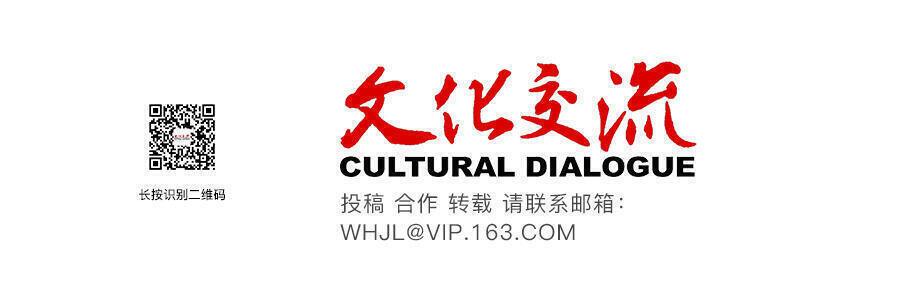The provenance of Xitang is a mystery. Some say that a long, long time ago, two waterways converged into one, creating a bustling town that came to be known as “Xietang”.
No historical documentation has been found to give the picturesque town an exact birth date. Some more speculative sources claim that Wu Zixu, a high minister of the state of Wu during the late Spring and Autumn period (770-476BC), took his troops to present-day Xitang where he ordered a canal be built and named “Xutang”. The town where the river was originally sited took the same name.
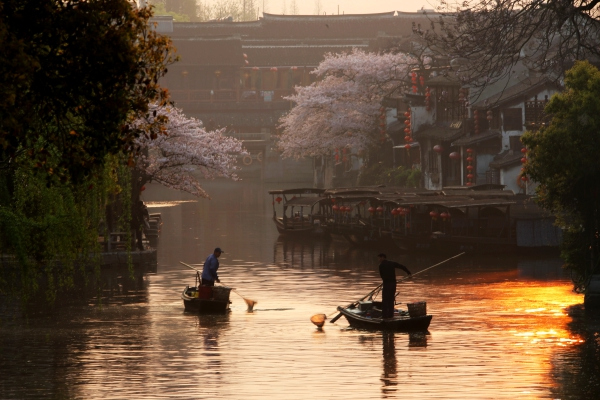
Still, other sources attribute the name “Xitang” to the fact that several rivers to the northwest of Xutang merged into one when they reached the waterway.
Whatever the explanation goes, Xitang was born from “water”, and “water” is the cultural soul of Xitang.
The fact that the alley maze of the “water town” is designed to make sure each of the 122 lanes leads to a quay adds to the mystery and overall appeal of Xitang. Here, nine rivers converge and divide the town into eight zones. The town’s intricate layout also includes numerous bridges that have long been the pride and joy of locals who amble over ancient stone arches each and every day. The intricate carvings on the rocks used to fasten the boats are also a joy to behold.
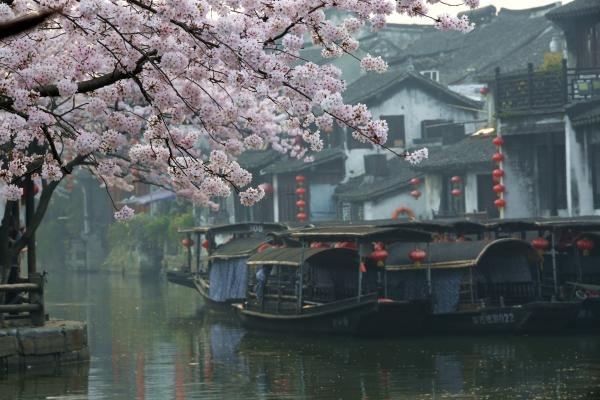
Wherever you turn, you feel the soulful allure of water. It seems that all the local delicacies on offer at the low-slung shopfronts smell as sweet as the morning dews, although the locals busy themselves with daily tasks without realizing the company of the stoic and resolute waterways.
Nearing the end of one of the alleyways, the air is filled with lovely scents of brown sugar and osmanthus fragrance. For local customers and curious visitors alike, Xitang’s signature “sweet porridge” is a must-have for a snack in any lazy afternoon. One’s culinary indulgence in the town must also include a taste of many other unique delicacies such as chicken wonton, home-brewed rice wine, "matuan" (fried glutinous rice balls), tofu pudding, and "bazhengao" – the jewel in Xitang’s cakes and pastries crown.
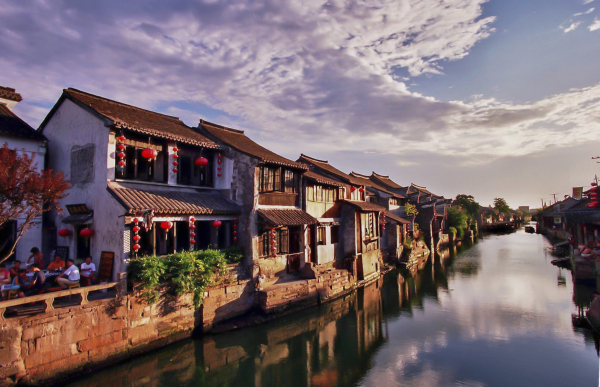
It is believed that “bazhengao”, literally “pastry made of eight treasures”, is a reinvention of a prescription written into a TCM masterpiece by Chen Shigong in the Ming Dynasty (1368-1644). The locals believe the combination of the eight Chinese medicinal materials used in the recipe is highly nutritious and effectively therapeutic when consumed in the right season of the year. It is also believed that this good-for-all supplement has the magic power to counteract the intestinal problems of children.
For the oldies in the town, a new day starts from the breakfast tea at one of those riverside teahouses where regular customers join the revelry of waiters filling the cups skillfully and choreographically and engage in chitchatting and gossiping. For them, the immense solace brought by the morning routines is the ultimate enjoyment of life.
The locals are also fascinated by flowers, and flowers thrive on water. Xitang enjoys the reputation of “the azalea town”. It is a long-time tradition of appreciating balsamina blossoms at the yearly Qiqiao Festival on the 7th of July on the traditional Chinese lunar calendar. It is believed that the extracts of the flowers can enhance the eyesight and promise a bright future.
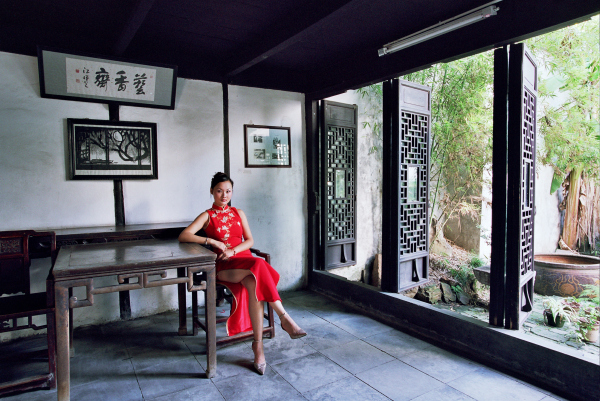
Behind the yearly temple, fair celebrated by the locals on the third day of April is a surprisingly forthright and bittersweet story of a Jin-surnamed grain transport supervisor who saved the starving Xitang people at the cost of his own. A temple was built where the man drowned himself. The temple fair, created by the locals to say thank you, includes various hilarious activities that run from sunrise to sunset for three days.
Behind the tradition of releasing lanterns onto the rivers on the night of the second last day of July is also a quirky backstory about Zhang Shicheng, one of the leaders of the peasants uprising in the late years of the Ming Dynasty (1368-1644). Straw sandals carrying brightly lit candles are released onto the town’s main waterways, presenting a glittering nocturnal scene that cleanses the soul of everyone. The sound of running waters only adds to the overwhelming silence, in which the faith of all Xitang people is as charming as the town’s historical beginnings. Some things never change, and there is a comfort to be taken from that fact.
